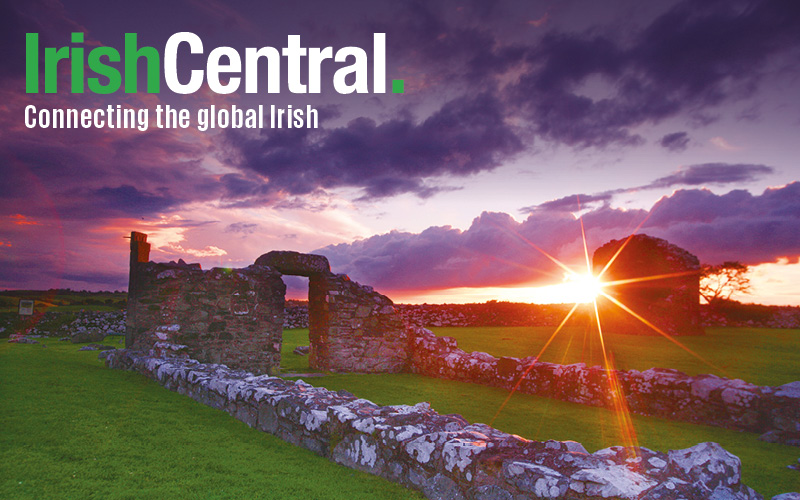Three young Irish students are about to make their country proud as a scientific project they have been working on since October will make its way to space in May 2009. James Carton, David Clarke and Brian Kelly, all interns at NASA’S Space Life Sciences Lab (SLSL) at Kennedy Space Center (KSC) in Florida as part of the FAS (Irish training and employment authority) Science Challenge Program, spoke to the Irish Voice last week about their proud achievement and what it was like working in NASA. Clarke, 23, has a manufacturing engineering degree from DCU and a master’s degree in computer aided mechanical engineering. Clarke, from Co. Meath, said working for NASA, at the forefront of engineering innovation for the past 50 years, has “opened” his eyes to the amount of work and research it takes to send people, satellites and payloads out of the atmosphere to orbit and beyond. “I am working with a team of highly qualified engineers who have taught me a lot about working in the space industry and high class engineering in general,” said Clarke, who much prefers Florida’s sunshine to Ireland’s gloomy weather. Clarke and his Irish colleagues are currently making the final preparations to a unique biological experiment platform that, when completed, will be able to study plant growth in space. Their project is scheduled to fly on board the Space Shuttle STS 127 in May 2009. The platform they have been working on since their arrival in October is known as “ABRS.” It is a new hardware system that acts as a platform for conducting a wide variety of biological experiments of short and long durations on both the Space Shuttle and the International Space Station. Clarke would like to continue working in the area of aerospace, but first he plans to get a PhD in the area and he hopes to someday live in the U.S. on a full time basis. Dublin native Gannon, who is the director of education at Space Florida, told the Irish Voice that the work the three advanced Irish engineers are doing is “ very important” because “it represents the very first occasion in which Irish engineers and scientists interning in the FAS Science Challenge Program have personally worked on space hardware that will fly on both the Space Shuttle and the International Space Station (ISS).” Gannon, who has been with Space Florida for five years, said the Irish involvement is “almost akin to having the first Irish astronaut on board.” In fact, he said, “some scientists might say even more important, as true science and innovation is represented here.” Carton, 27, from Co. Wexford, described his involvement with such a huge project as “ an opportunity of a lifetime.” Carton, who graduated with a degree in manufacturing engineering from Dublin Institute of Technology (DIT) and is currently completing his PhD in mechanical engineering at Dublin City University (DCU), feels working at NASA is just a “stepping stone” to the next level of his career. “I have received a wealth of information from the experienced NASA engineers and researchers. A chance to meet and form links with these professionals has been amazing,” he said. Carton, who resides at Cocoa Beach and loves the Florida wildlife and gorgeous weather, is confident when he completes his PhD, which he aspires to do in the next two years, he will pursue a career in the space industry. He hopes to work with the European Space Agency first and then NASA when, he said, “I gain enough experience.” Carton, who applied for the FAS program numerous times but didn’t secure a place until 2008, said he was delighted to have finally been chosen. He said he had no idea how “unbelievable” it would be. “I understood that I would be working at the John F. Kennedy Space Center but had very little knowledge of what I would actually be doing. Never did I think that I would be redesigning mechanical and electronic systems, and testing parts of a growth chamber that will eventually be incorporated into the International Space Station performing experiments,” he said. “It has thought me that if I work hard enough and try and try again I will get to where I want to be.” The youngest engineer, Dublin man Brian Kelly, 22, tells the Irish Voice, that the “opportunity to work at a world class facility such as the Space Life Sciences Lab at the Kennedy Space Center” will provide an immeasurable boost both to him personally and to his career as an engineer. “In these harsh economic times, the advantage of having experience such as this on my resume could make all the difference between an okay engineering career and a great engineering career,” he said. Kelly, who graduated from University College Dublin in 2008 with a BE in mechanical engineering, and plans to complete a master’s degree in engineering science at UCD when he returns to Ireland in April, said gaining such a sweet resume would not have been possible if not for the FAS program. And it’s not all been about work, said Kelly. “The program has also given me the chance to experience Florida and some of its amazing cities and beaches,” said. When asked about the specifics of his day-to-day duties, without giving away any NASA secrets, Kelly explained that he is part of an engineering team that is responsible for ensuring that specific verifications are met. “There are very stringent verifications that all payloads, such as ABRS, must meet. These verifications cover every possible aspect of a payload such as the materials used for manufacture, how the payload interacts with both the craft and crew, any possible hazards it might create and ensuring that the payload can stand up to the harsh conditions of launch, re-entry and landing,” he explains.




Comments